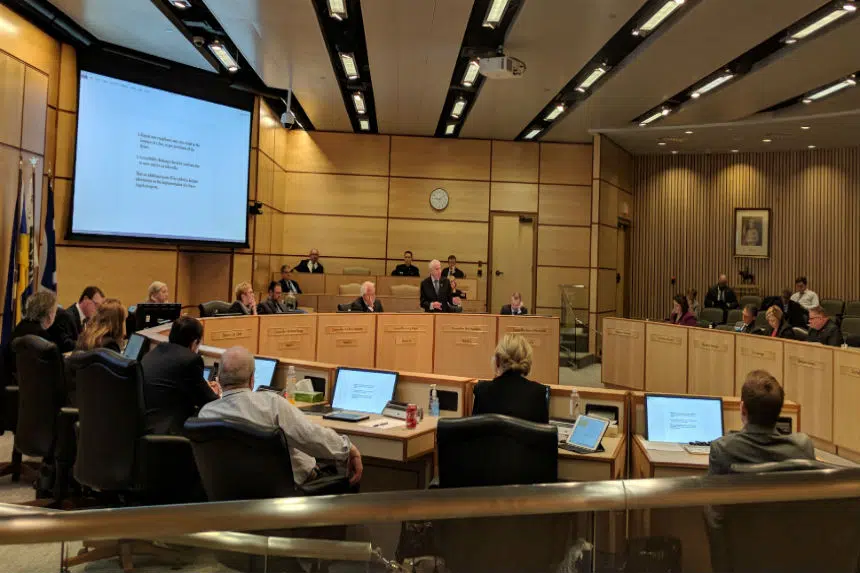An initial plan for how Regina will deal with the legalization of recreational marijuana has been given the green light.
City council formally approved six retail permits, but that number didn’t come without debate.
“There’s been questions of whether six locations are enough to actually disrupt the black market,” said councillor Joel Murray.
He got the motion to include a future report from administration and police on what kind of effects the licensed stores will have on the illegal cannabis market. The report will be done within two years of legalization.
Mayor Michael Fougere will ask the Moe Government for enough revenue to recoup the costs incurred by the city to roll out the changes associated with the new law. He said the financial impact could be in the millions.
“Taxpayers should not have to pay for this,” said Mayor Michael Fougere. “Those costs could be in the millions, yes, and I don’t want that on the backs of taxpayers.”
Council also voted to have the province provide an accounting of what its expenses will be related to marijuana becoming legal.
The city’s pot plan also lays the groundwork — in a broad sense — on things like zoning, licensing and where the drug can be smoked.
Bob Hawkins was the only councillor to say nope to dope.
“I just don’t think it’s right. I’m opposed,” he said after raising concerns with licenses being approved without knowing costs.
“I am concerned about the spread of a drug culture within our society,” he added.
There are still announcements forthcoming from the provincial government on other aspects of the law, such as the age limit and the potential of restrictions in where one can use cannabis.
Once some of these other aspects are known, another report will come to city council and further decisions will be made.
Snow clearing motion defeated
Councillors Andrew Stevens and Lori Bresciani spearheaded a motion which turned out to stir up a lot of emotions for residents.
Many councillors and the mayor said they received a lot of feedback on the possibility of homeowners receiving a fine or a bump in their tax bill if they failed to clear their sidewalks within 48 hours of a snowfall.
A motion to get the ball rolling on that proposal was defeated by a vote of 7-4.
“I think we’re just kind of taking a half-assed approach to dealing with an accessibility problem,” said Stevens.
He pointed out how other cities across Canada have a similar system to what he proposed which seems to be effective.
First, voluntary compliance is sought by bylaw enforcement officers. Then, if that doesn’t succeed, a contractor is used to clear the sidewalk and the cost is billed to the homeowner through an increase in property tax. Additional fines would be an option as well.
A number of delegates spoke in front of council, sharing their stories of having difficulty simply getting around in the winter with snowy or icy sidewalks. Letter carriers, seniors and those with vision impairment were among the speakers.
While many showed up to voice their concerns, Mayor Fougere said the voices of residents who didn’t show up were even louder, and they were against fines.
“I got the passion of people that were here tonight, no question about that. But the passion I see and the anger I get on the other side just says to me I just got to deal with this and I’ve got to say I don’t support it,” said the mayor.
The motion on the table would have directed the administration to prepare a report on snow clearing, which would have come back to council at a later date for more discussion.
Budget meeting
The mayor and councillors will be right back at it Tuesday night as the annual budget is discussed.
Administration is proposing a property tax increase of 4.86 per cent. For a home valued at $350,000 that translates into another $7.70 a month on tax bills.
Nearly 10 delegates are expected to speak for and against aspects of the proposed budget.
That meeting starts at 5:30 p.m. at city hall.







